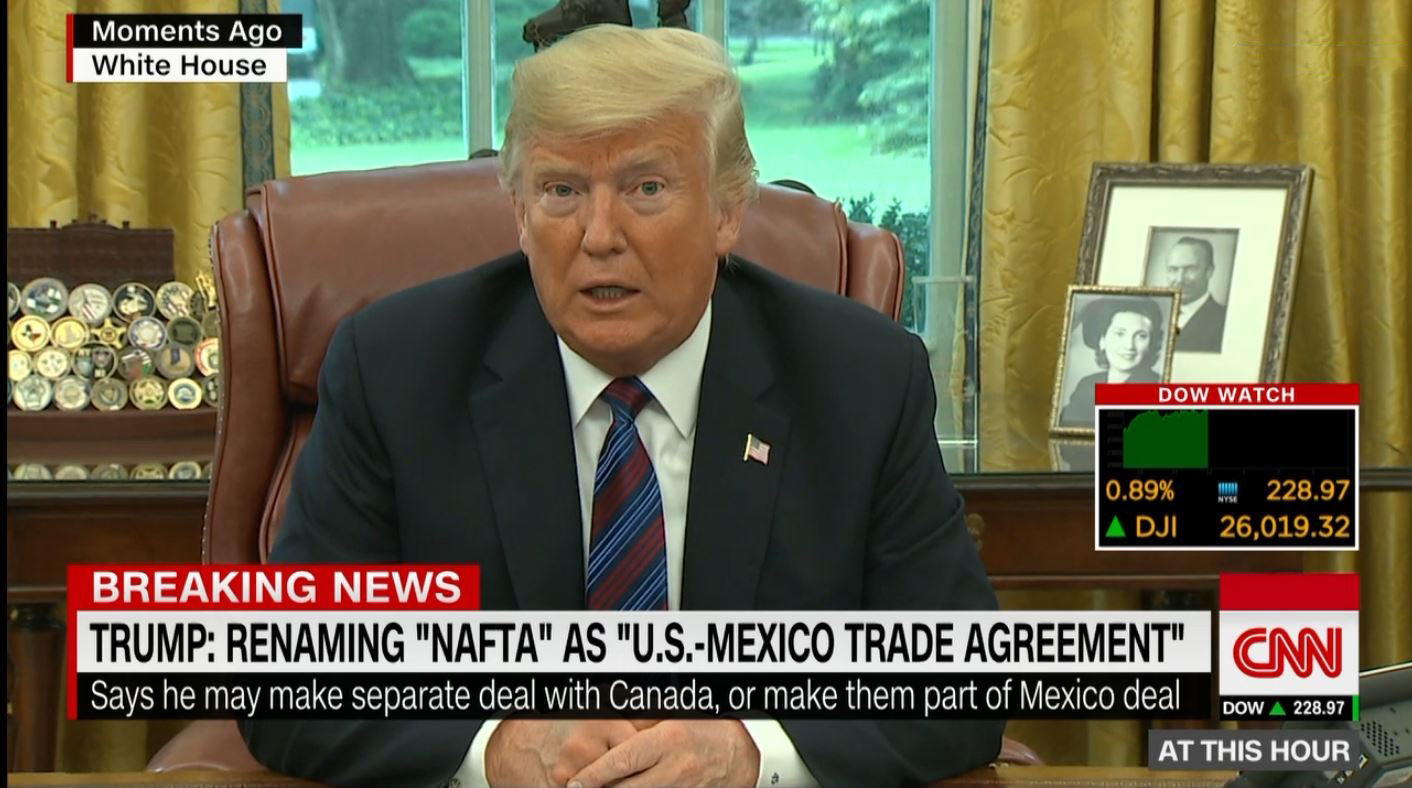 Actual breaking news
Actual breaking news
Aug 28, 2018
WASHINGTON, DC -- After months of negotiations, President Trump announced today that the United States and Mexico had reached a new trade agreement that he would like to replace the North American Free Trade Agreement (NAFTA).
Speaking from the Oval Office, Trump said the new deal would be called "the U.S.-Mexico Trade Agreement" and that it would be a win for both countries.
The Office of the U.S. Trade Representative said in a statement that "under a modernized agreement, tariffs on agricultural products traded between the United States and Mexico will remain at zero."
During a press conference today, U.S. Secretary of Agriculture Sonny Perdue said "we mutually pledge to work together with Mexico to reduce trade-distorting policies, increase transparency, and ensure non-discriminatory treatment in grading of agriculture products."
While the new agreement appears to focus on manufacturing and textiles, the successful conclusion of talks is welcome news to any industry that heavily relies on trade with Mexico - such as the U.S. rice industry.
"We export about half of our total crop annually, and a quarter of that goes to Mexico either as milled or rough rice, so eliminating some of the uncertainty we have been feeling is very positive," explained Betsy Ward, president & CEO of USA Rice. "The ag sector was one that clearly benefited from NAFTA but we agreed that updates and modernization were necessary."
Of concern to Ward is the absence of Canada from the agreement at this time.
"Mexico is the U.S.'s number one market for rice both in terms of value and volume, but Canada, the third party in the original NAFTA deal is the United States' fourth largest export market for rice," she said. "Today's announcement is good news for sure, but Canada needs to be included as well - our three economies are closely tied together and U.S.-grown rice relies on both of our neighbors."